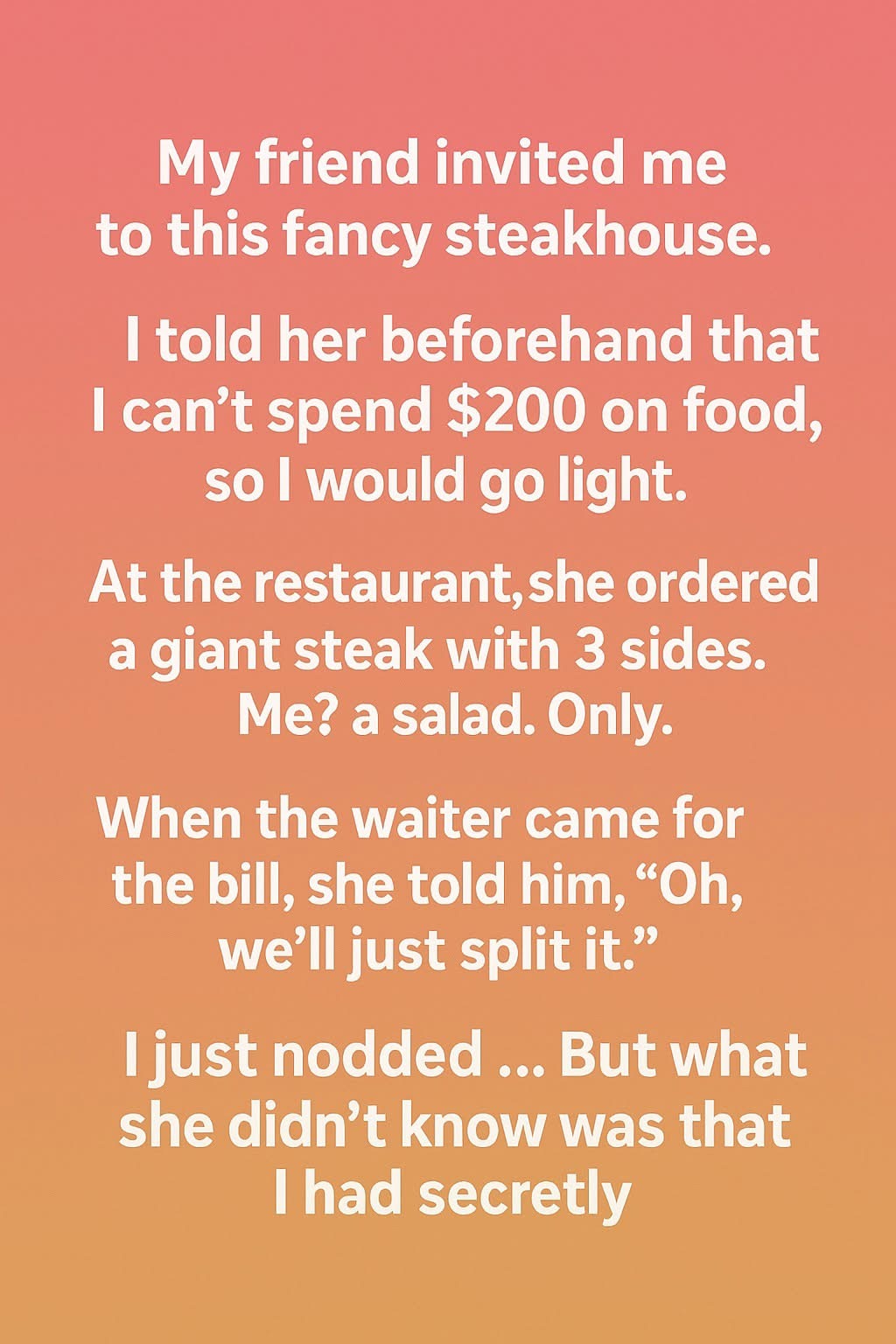When my friend Mia invited me to an upscale steakhouse, I hesitated. I loved seeing her, but the prices made me nervous — car repairs and rent had already stretched my budget. Over the phone, I tried to explain, and Mia laughed it off. “Order whatever you want — no pressure,” she said. I believed her. At the restaurant, the smell of butter and oak made me feel fancy before I even sat down. Mia arrived looking effortlessly glamorous.
We ordered drinks — I stuck to water, she had wine — and caught up on life: jobs, apartments, family. I tried to enjoy myself, but the mental math on menu prices never stopped. When the food arrived, her ribeye and truffle fries looked incredible. My salad felt small in comparison, but I reminded myself: this night was about friendship, not food. Then came the check. Mia smiled, “We’ll just split it.” My stomach sank. Before I could respond, the waiter set down two separate checks.
I calmly explained that I had called earlier to pay my part ahead of time, so there would be no confusion. Mia paused, realizing she hadn’t listened. “I guess I just assumed we’d do what we always do,” she admitted. I reassured her, “I like spending time with you — I just need to do it in a way that works for me.” The tension broke. We laughed, the way we always did, and Mia hugged me before leaving. “You taught me something tonight,” she said. “Boundaries don’t have to be mean.” Later, I reflected on the evening. I’d spent so long avoiding conflict, trying to please everyone, that I’d forgotten my own comfort mattered.
Setting boundaries isn’t about punishment; it’s about clarity and respect. Since that night, Mia and I talk about the bill beforehand, sometimes choosing affordable places, sometimes celebrating big moments. Honesty now guides our friendship, not assumptions. That steakhouse dinner wasn’t about money. It was about finding my voice, saying, “This works for me,” and trusting a true friend to respect it. Standing up for yourself doesn’t have to cost a friendship — it can strengthen it.
